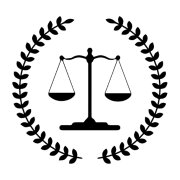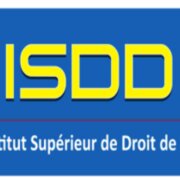Best Conveyancing Lawyers in Dakar
Share your needs with us, get contacted by law firms.
Free. Takes 2 min.
Free Guide to Hiring a Real Estate Lawyer
List of the best lawyers in Dakar, Senegal
About Conveyancing Law in Dakar, Senegal
Conveyancing is the legal process of transferring ownership of real estate or property from one party to another. In Dakar, Senegal, conveyancing plays a significant role in both commercial and residential property transactions. It involves a series of legal steps to ensure the proper and safe transfer of property rights, protection of buyers and sellers, and registration of titles. Conveyancing law in Senegal is guided by local statutes and regulations designed to safeguard property ownership and minimize disputes. The process can be complex due to specific legal requirements and administrative steps mandated by Senegalese law.
Why You May Need a Lawyer
Individuals and businesses may need the assistance of a lawyer for conveyancing in Dakar for several reasons. Property transactions typically involve high-value assets and substantial legal paperwork, making professional legal advice essential to protect your interests. Common situations include:
- Purchasing or selling land, houses, or apartments in Dakar
- Registering property titles or verifying title authenticity
- Resolving legal disputes over property ownership or boundaries
- Transferring inherited real estate assets
- Navigating joint ownership arrangements
- Understanding and complying with changes in property tax law
- Securing bank lending or mortgages with property as collateral
A lawyer will help you interpret contracts, conduct due diligence on property titles, ensure compliance with local laws, and represent you in negotiations. Their expertise reduces the risk of future legal complications.
Local Laws Overview
Conveyancing in Dakar, Senegal is influenced by a mix of statutory law and longstanding legal traditions. Some of the most relevant aspects include:
- The use of notaries is mandatory for executing property transfer deeds. Only registered notaries can formalize real estate transactions.
- All property transfers must be recorded at the Land Registry (Conservation Foncière) to be recognized legally. Registration is critical to establish ownership.
- Title search and verification procedures are necessary to confirm the property’s legal status and absence of encumbrances or liens.
- Taxes and fees, including transfer duties and registration fees, are assessed based on the value of the property being transferred.
- Laws governing inheritance and family property, such as those relating to succession, may impact conveyancing for inherited properties.
- Foreign nationals have specific provisions governing their ability to acquire land or property in certain areas.
Given Dakar's rapid urbanization and real estate development, understanding these legal intricacies is crucial for a secure transaction.
Frequently Asked Questions
What is conveyancing in Dakar, Senegal?
Conveyancing refers to the legal process of transferring property ownership from one person or entity to another, following procedures defined by Senegalese law.
Is it necessary to use a lawyer or notary for property transactions in Dakar?
Yes, property transfers in Senegal must be formalized through a notary, who ensures all legal requirements are met and registers the transaction.
How can I verify that a property title is legitimate?
A lawyer can conduct due diligence, including a title search at the Land Registry, to confirm that the title is genuine and free from encumbrances.
What are the typical steps in a conveyancing transaction in Dakar?
Key steps include negotiating and drafting the sale agreement, notarial formalization, conducting a title search, paying relevant taxes and fees, and registering the transfer at the Land Registry.
How are taxes and fees calculated in property transfers?
Transfer duties and registration fees are calculated based on the property’s value and are paid at the time of registration. These are specified by Senegalese tax regulations.
Can foreigners buy property in Dakar, Senegal?
Yes, foreigners can buy property in Senegal but may face restrictions on certain types of land or locations. Additional documentation and approvals may be required.
What happens if a property has multiple owners?
All owners must be involved in the consent and execution of the conveyance. Lawyers help clarify co-ownership rights and resolve disputes if needed.
What should I do if there is a dispute over a property boundary?
Seek legal advice promptly. Your lawyer will review property documents, commission a survey if necessary, and assist in negotiations or litigation if required.
Do inherited properties follow a different conveyancing process?
Properties inherited through succession have specific procedures, including validating the succession process and updating the Land Registry to reflect new ownership.
How long does the conveyancing process usually take?
Timelines vary depending on the complexity of the transaction, but the average property transfer in Dakar may take several weeks to a few months to complete.
Additional Resources
For those seeking more information or legal assistance in conveyancing in Dakar, Senegal, several resources can be helpful:
- Chambre des Notaires du Sénégal - The national body regulating notaries
- Conservation Foncière - The official Land Registry office
- Ministry of Urbanism, Housing and Public Hygiene - Government department overseeing housing regulations
- Local Bar Associations - For referrals to qualified property lawyers
- Legal aid clinics and university law faculties in Dakar
Next Steps
If you need legal assistance with conveyancing in Dakar, Senegal, start by gathering all relevant property documentation, including existing titles, contracts, and identification documents. Consider consulting with a licensed lawyer or notary who specializes in property law to assess your situation. Prepare any questions or concerns you have regarding the transaction. Your legal adviser will guide you through due diligence, contract preparation, negotiations, and the formal registration process to ensure a smooth and secure transfer of ownership. Early professional involvement helps prevent costly errors and provides peace of mind throughout your property transaction.
Lawzana helps you find the best lawyers and law firms in Dakar through a curated and pre-screened list of qualified legal professionals. Our platform offers rankings and detailed profiles of attorneys and law firms, allowing you to compare based on practice areas, including Conveyancing, experience, and client feedback.
Each profile includes a description of the firm's areas of practice, client reviews, team members and partners, year of establishment, spoken languages, office locations, contact information, social media presence, and any published articles or resources. Most firms on our platform speak English and are experienced in both local and international legal matters.
Get a quote from top-rated law firms in Dakar, Senegal — quickly, securely, and without unnecessary hassle.
Disclaimer:
The information provided on this page is for general informational purposes only and does not constitute legal advice. While we strive to ensure the accuracy and relevance of the content, legal information may change over time, and interpretations of the law can vary. You should always consult with a qualified legal professional for advice specific to your situation.
We disclaim all liability for actions taken or not taken based on the content of this page. If you believe any information is incorrect or outdated, please contact us, and we will review and update it where appropriate.












